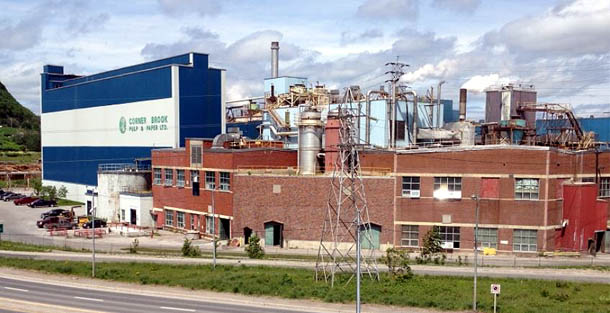Corner Brook Newsprint Benefits from Lower Canadian Dollar
![]() Print this Article | Send to Colleague
Print this Article | Send to Colleague
According to a report this past week by CBC Radio, Toronto, Ont., Canada, the low Canadian dollar is providing a boost for Corner Brook Pulp and Paper, but its parent company said profits are not soaring.
 Kruger VP Daniel Archambault said newsprint is sold in U.S. dollars, so the weak loonie is positive for exporters like newsprint companies.
Kruger VP Daniel Archambault said newsprint is sold in U.S. dollars, so the weak loonie is positive for exporters like newsprint companies."There will always be newsprint consumed in the world for many, many years to come — there'll be less but there'll be some. The Canadian dollar is right now a positive factor for us. However, it does not really resolve the structural issue of the newsprint market," Archambault (photo at right) told CBC's Corner Brook Morning Show.
He said that demand for newsprint dropped by more than 12% on world markets last year, which forced prices down, wiping out the exchange rate advantage.
"At the end of 2015, our revenues in Canadian dollars were about the same that they were when the dollar was at parity, because the price went down drastically while the exchange went on the right side," said Archambault.
Archambault said newsprint is sold in U.S. dollars, so the weak loonie is positive for exporters like paper companies. "So that's what we're facing. It's a challenging market."
Archambault said the price will eventually stabilize but the low dollar does give the mill some breathing room.
Corner Brook Pulp and Paper's primary markets are in the U.S. and South America, with other product sold to India and elsewhere around the globe. The company's mill site is pictured below.

Archambault said continuing to produce a high-quality product that newspapers want and reducing manufacturing costs are both key to remaining competitive.
"So when we sell a ton of newsprint on the world market, you know, we have a positive margin on the end."
Archambault said the low cost of oil has also had a positive impact. He said the mill's machinery uses diesel, which lowers wood costs. The companies shipping costs are lower, as its machinery uses diesel, which also lowers wood costs.
Mill operation costs, however, remain largely the same.
"The mill, as its day to day operation, other than for its moving equipment doesn't use any bunker. We're generating our steam from biomass and a bit of recycled oil that we buy on the market ... the low price of oil doesn't have really an impact on the mill itself," he said.
To keep the Corner Brook mill competitive, Archambault said they will keep it producing newsprint while trying to increase the value they offer to their customers. He explained that this mill has an advantage because of the integration with Deer Lake Power, which according to the company, produces almost 75% of the mill's power requirements.
"There will always be newsprint consumed in the world for many, many years to come — there'll be less but there'll be some. We've invested, you know, monies and time to improve our quality, have a new grade, new basis weight to meet the market demand, and maybe differentiate ourselves from our competition," said Archambault.
"For example, we're introducing a very lightweight sheet that is an advantage on the printer because it's going to give him a very good printing quality, but it's going to reduce its cost because on the per ton basis he's going to have a lot more yardage of newsprint."
Over the years, the mill has had to tighten up its operations and workers have made concessions to keep things going, but Archambault said its employees relations are "moving ahead as they should be."
Archambault concluded that a company that can produce a low cost, high quality product will stay in business.
"Newsprint, when you look at the technology today is a product of the past, but you know there will always be newsprint consumed in the world for many, many years to come — there'll be less but there'll be some."


